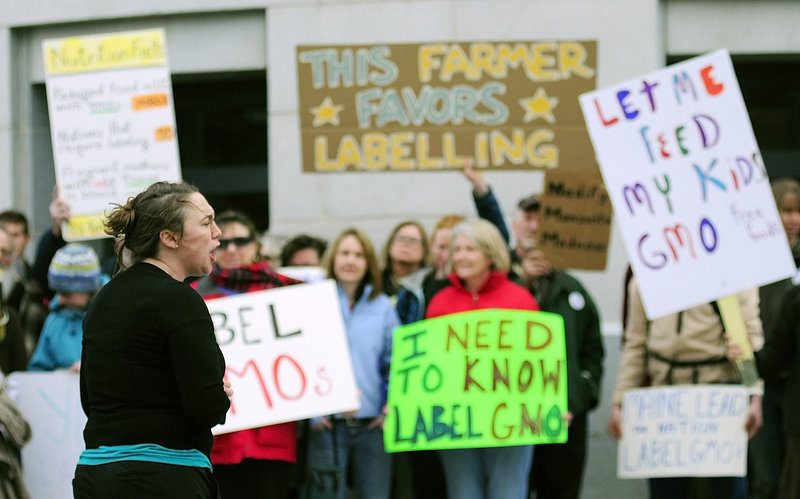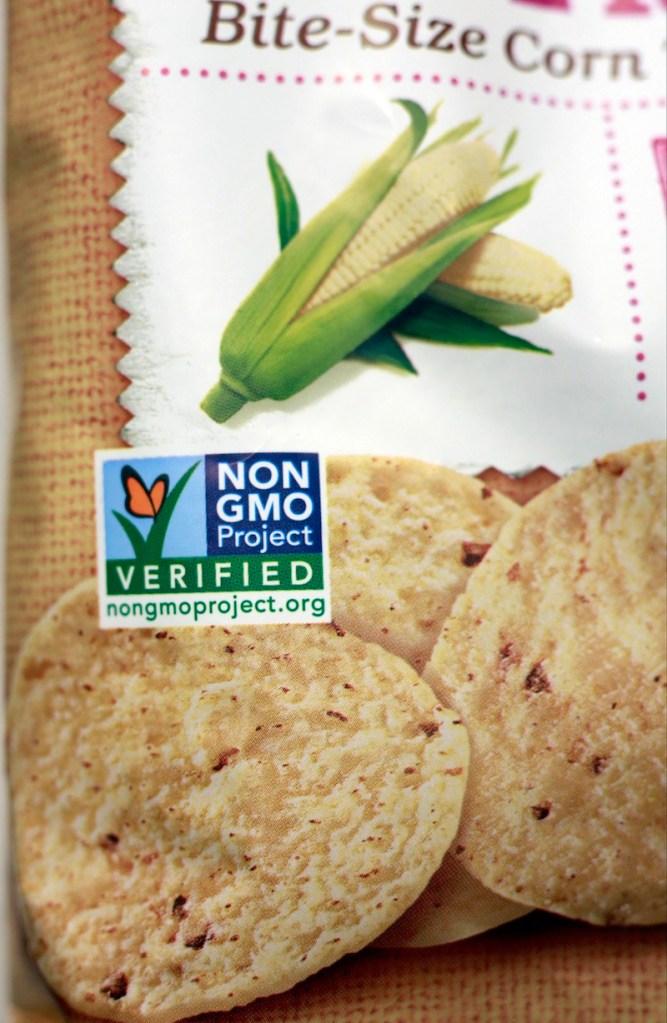AUGUSTA – Gov. Paul LePage confirmed Tuesday that he will sign a bill to require food producers to label products that contain genetically modified ingredients.
In a letter obtained by the Portland Press Herald, the governor informed the lead sponsors of L.D. 718 that he will sign the measure when lawmakers reconvene after the current legislative session adjourns.
The delayed signing will likely make the bill effective in January and give the state time to plan its response to what officials believe is an inevitable lawsuit by the food production and agribusiness industry.
Rep. Lance Harvell, R-Farmington, the sponsor of L.D. 718, told the Press Herald on Monday that the governor planned to sign the bill. Tuesday’s letter, obtained through a Freedom of Access Act request, confirms LePage’s intention.
The letter doubles as assurance to supporters of the food labeling bill that it will become law.
The bill is part of a national movement to pressure food producers to disclose whether their food contains ingredients that are bioengineered — their DNA spliced with that of unrelated plants, animals, bacteria or viruses.
L.D. 718 has counterparts in 30 states and is part of a 50-state strategy that supporters hope will prompt the federal government to draft national labeling standards for genetically engineered foods.
The proposal has won overwhelming support in the Maine Legislature. On Tuesday, activists delivered 3,850 petition signatures urging LePage to sign the bill.
LePage, in his letter to Harvell and Sen. Chris Johnson, D-Somerville, echoed concerns expressed by Attorney General Janet Mills about the legal challenge the state would face. However, he wrote, “I deeply appreciate the strong public sentiment behind the bill and agree that consumers should have the right to know what is in their food.”
LePage acknowledged that delaying the signing of the bill would enable Maine to monitor action in other states.
“It is to Maine’s benefit to simply delay implementation of the law, and take advantage of the results of litigation in other states,” the governor wrote.
Agribusiness giants like Monsanto have threatened to sue states that enact food labeling laws. The industry says labeling misleads consumers into believing that foods with bioengineered ingredients are less safe or less healthy than other foods.
The U.S. Department of Agriculture estimates that 70 percent of the processed food in American supermarkets has genetically modified ingredients. The FDA regulates genetically modified foods but does not approve them.
Mills told lawmakers in May that she could not guarantee that her office would be able to defend the constitutionality of L.D. 718.
The bill wouldn’t take effect until five contiguous states, including Maine, passed similar legislation. The change was designed to split potential court costs among several states.
It’s also why LePage wants to wait until next year to sign the bill.
The bill is supported by numerous groups, including the Maine Organic Farmers & Gardeners Association and Maine Conservation Voters. It is opposed by business groups, including the Maine State Chamber of Commerce and the Maine Grocers Association, a local affiliate of the Grocery Manufacturers Association, one of the leading industry groups fighting labeling laws.
Steve Mistler can be contacted at 620-7016 or at:
smistler@pressherald.com
Twitter: @stevemistler
Send questions/comments to the editors.




Success. Please wait for the page to reload. If the page does not reload within 5 seconds, please refresh the page.
Enter your email and password to access comments.
Hi, to comment on stories you must . This profile is in addition to your subscription and website login.
Already have a commenting profile? .
Invalid username/password.
Please check your email to confirm and complete your registration.
Only subscribers are eligible to post comments. Please subscribe or login first for digital access. Here’s why.
Use the form below to reset your password. When you've submitted your account email, we will send an email with a reset code.